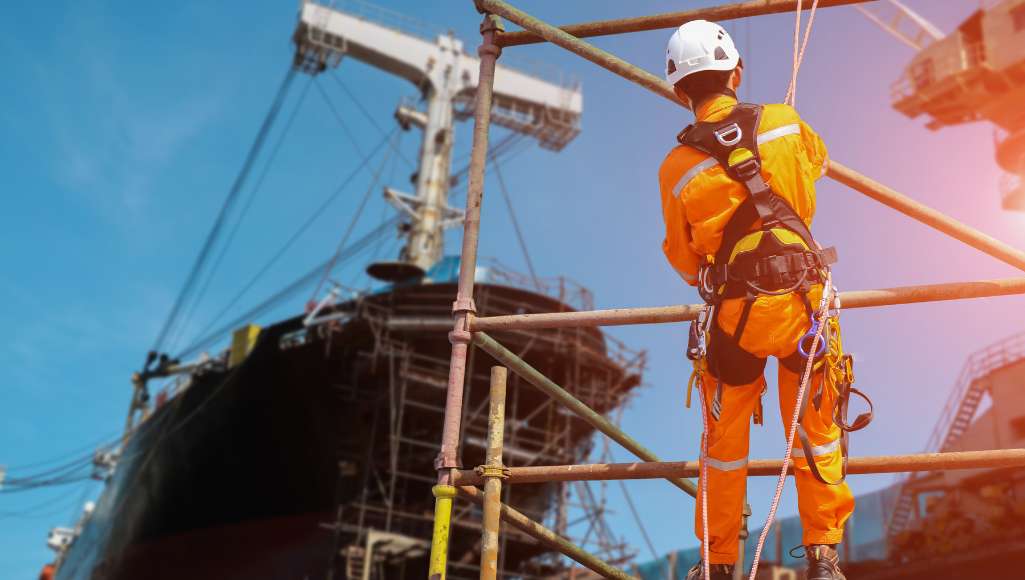
How New Regulations Will Impact Crew Management in Maritime Now and In the Future
By John Prell, Assistant General Counsel
The maritime industry is undergoing major regulatory updates to strengthen protections for seafarers. The 2022 MLC Amendments, along with the EU’s new supply chain laws (CSRD and CSDDD) and recent STCW updates, are redefining standards for working conditions and seafarer welfare.
MLC Amendments
The MLC remains central to seafarer well-being. The 2022 amendments, set to take effect next month, draw from COVID-19 lessons to improve healthcare, social connections and living standards for seafarers. In response to issues around medical care access that peaked during the pandemic, the amendments now require Member States to make prompt shoreside care available to seafarers in cases of serious injury or disease.
To support mental health by strengthening social connectivity, shipowners must also provide seafarers with internet access on board, with any charges kept at a reasonable level. Member States are also expected to facilitate access for seafarers on ships in their ports and anchorages. In another signal that MLC regulators are committed to the mental and physical healthcare of seafarers, operators are now required to seek shoreside medical treatment if advised to by telehealth professionals.
EU Supply Chain Laws
The EU’s Corporate Sustainability Reporting Directive (CSRD) and Corporate Sustainability Due Diligence Directive (CSDDD) are reshaping corporate accountability across global supply chains, including the maritime industry. This year, the CSRD began requiring around 50,000 companies to disclose their social and environmental practices, including working conditions, while the CSDDD has broadened due diligence to cover human rights and environmental risks worldwide.
These regulations showcase the “Brussels Effect”, a phenomenon where EU standards set the benchmark for global practices, influencing companies outside the EU. For multinational corporations, the need to comply with EU regulations often results in them applying the same standards across all regions in which they operate, in order to maintain consistency and reduce compliance complexity. This means that even non-EU companies with ties to EU markets are likely to adopt these standards, extending the impact of the CSRD and CSDDD worldwide.
A key aspect of the CSRD is its “double materiality” approach, which requires companies to evaluate how their activities affect financial performance and social factors, such as worker welfare. Although mental health isn’t specifically addressed, the broader focus on transparency encourages companies to seek more comprehensive healthcare solutions. The implications go beyond EU borders, potentially influencing global standards and helping to establish new norms for seafarer health and wellness support across the global maritime industry.
STCW Amendments
The IMO’s review of the STCW Convention included mental health and sexual assault and harassment (SASH). This year’s Human Element, Training and Watchkeeping subcommittee identified mental health, bullying, harassment, gender diversity and psychological safety as focus areas. A Maritime Safety Committee (MSC) meeting in May adopted amendments that introduce new training requirements for sexual assault, bullying and harassment prevention, which are expected to come into force in January 2026. Although mental health standards were not finalised, their inclusion signals likely future amendments.
Conclusion: Raising the Bar for Seafarers
These regulations collectively raise the bar for mental health and well-being standards in maritime work. Compliance now requires companies to embed a culture of care that prioritises mental health, facilitates communication, and strengthens onboard support systems. VIKAND’s recent white paper provides maritime companies with guidance on adapting to the evolving EU supply chain laws to maintain compliance and address worker welfare and environmental practices.
In this edition of Pulse, step inside the process of building medical facilities on new cruise ships, explore the evolution of healthcare at sea with the founder of Riverr, learn more about psychological safety at sea, and more.


